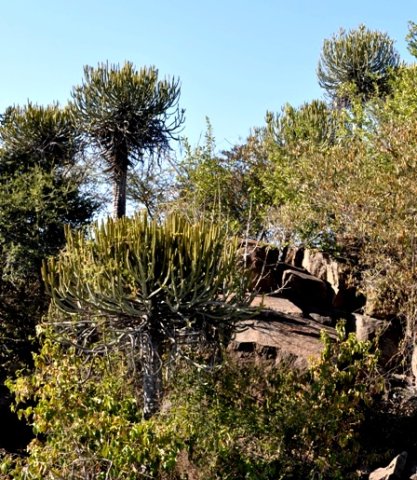Euphorbia sekukuniensis not yet submerged

Author: Ivan Lätti
Photographer: Philip van Heerden
This stand of Euphorbia sekukuniensis was drowned by the new De Hoop Dam in the Steelpoort River near Burgersfort in Limpopo when it first filled up. Many plants, including specimens of this Euphorbia were collected from the Dam basin for transplantation before this event.
Not everything the diligent members of Operation Wildflower have transplanted has grown. But many of the saved plants have. Skills grew from study, sharing experiences and trial and error continually. All of this made a difference in its time!
Operation Wildflower performed similar plant rescue operations in many areas, such as where the Gautrain runs today. When alerted in time about authorised development plans for areas where indigenous vegetation was going to be destroyed, the Association brought its members to remove as many of the plants as possible for transplantation elsewhere. Landowners and developers collaborated with Operation Wildflower and the relevant authorities to save plants where possible.
Saving plants to reduce species destruction remains a continuing objective of many people that love nature. They employ new ways of achieving this now that Operation Wildflower no longer exists as a participant in the field.
Biodiversity losses diminish the life expectancy of the human race (as of all else that lives on earth). Species interdependence is still only partly understood in science, but everything we eat (and much else we depend upon), is provided by the other living things around us.
(Also see entries for E. sekukuniensis in the Euphorbia Album under Genera.)

